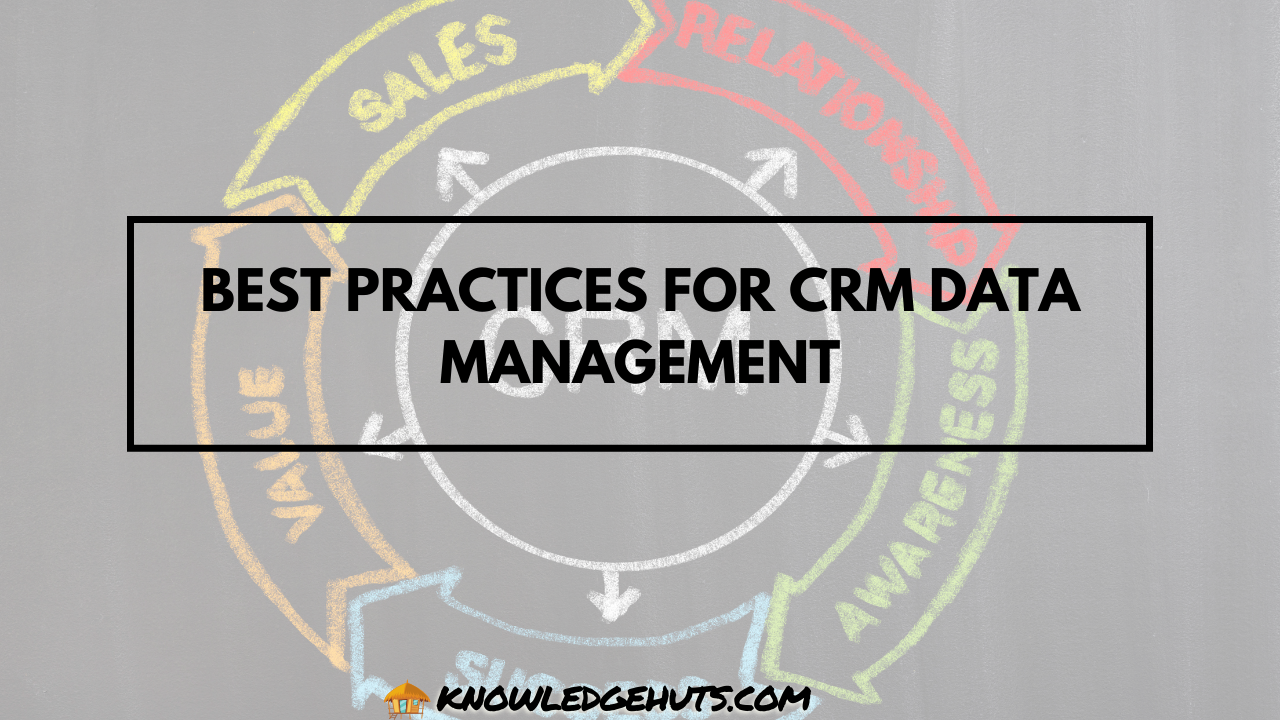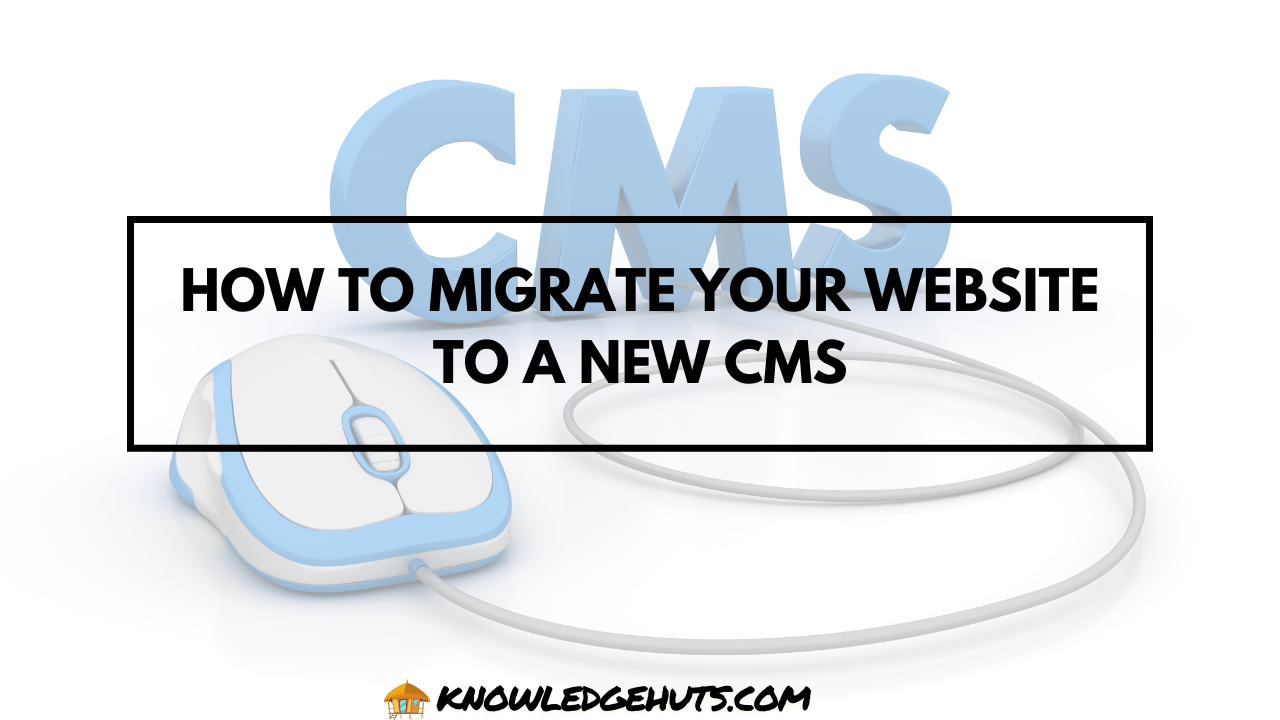In today’s competitive business landscape, Customer Relationship Management (CRM) systems are essential tools for managing customer interactions, improving customer satisfaction, and driving sales. However, the effectiveness of a CRM system hinges on how well the data within it is managed. Poor data management can lead to inaccurate reporting, lost sales opportunities, and even damage to customer relationships. To get the most out of your CRM, it’s crucial to follow best practices for CRM data management. This blog post will explore these best practices, helping you to maintain clean, accurate, and actionable data.
Introduction to CRM Data Management
CRM data management involves collecting, storing, organizing, and maintaining customer data within your CRM system. This data is the lifeblood of your CRM, driving everything from marketing campaigns to customer service initiatives. When managed effectively, CRM data can provide valuable insights into customer behavior, preferences, and trends, enabling businesses to make informed decisions. However, without proper data management, your CRM system can quickly become cluttered with outdated, duplicate, or inaccurate information, leading to inefficiencies and lost opportunities.
Understanding CRM Data
CRM data typically falls into several categories:
- Customer Information: This includes basic details such as names, contact information, demographic data, and company information for B2B contexts.
- Interaction History: Records of all interactions between the customer and your business, including emails, phone calls, meetings, and social media interactions.
- Purchase History: Information on past purchases, including products or services bought, transaction dates, and payment details.
- Behavioral Data: Insights into how customers interact with your website, emails, and other digital touchpoints, such as page visits, clicks, and downloads.
- Feedback and Surveys: Data collected from customer feedback forms, surveys, and reviews, providing insights into customer satisfaction and areas for improvement.
Each of these data types plays a crucial role in understanding your customers and tailoring your approach to meet their needs.
Best Practices for CRM Data Management
1. Data Quality Management
The foundation of effective CRM data management is ensuring the quality of the data. Poor data quality can lead to inaccurate analytics, misguided marketing efforts, and lost sales opportunities. Therefore, maintaining high data quality is essential.
Ensuring Accuracy, Completeness, and Consistency
To maintain accurate, complete, and consistent data:
- Regular Data Audits: Conduct regular audits of your CRM data to identify and correct inaccuracies, such as outdated contact information or incorrect customer details.
- Data Validation Rules: Implement validation rules within your CRM to ensure that data entered meets predefined criteria. For example, requiring mandatory fields to be filled out before a record can be saved.
- Standardization: Standardize data entry formats (e.g., phone numbers, addresses) to ensure consistency across the system.
Data Cleansing
Data cleansing involves identifying and removing or correcting inaccurate, incomplete, or irrelevant data from your CRM system. This process should be performed regularly to prevent the accumulation of bad data.
- Duplicate Removal: Use CRM tools to identify and merge duplicate records. Duplicates can lead to confusion, inefficiency, and inaccurate reporting.
- Updating Outdated Information: Regularly update contact information, job titles, and other dynamic data to ensure your CRM reflects the most current information.
Quote: “The key to successful CRM data management is not just collecting data but ensuring that it is accurate, complete, and actionable.” — John Doe, Data Management Expert
2. Data Integration
Effective CRM data management requires integrating your CRM system with other business systems. This ensures that data flows seamlessly across your organization, providing a unified view of customer information.
Integrating CRM with Other Business Systems
Integrating your CRM with other systems, such as marketing automation platforms, ERP systems, and e-commerce platforms, allows for better data synchronization and a more holistic view of customer interactions.
- Marketing Automation Integration: Sync your CRM with marketing automation tools to streamline your marketing efforts, track customer engagement, and nurture leads more effectively.
- ERP Integration: Integrate your CRM with ERP systems to ensure that customer information, orders, and financial data are synchronized, providing a complete view of the customer lifecycle.
- E-commerce Integration: Link your CRM with e-commerce platforms to track customer purchases, preferences, and behaviors, enabling more personalized marketing and sales efforts.
Benefits of Integration:
- Improved Data Accuracy: Data is automatically updated across systems, reducing the risk of errors.
- Streamlined Operations: Automation of data flow between systems reduces manual data entry and increases efficiency.
- Enhanced Customer Insights: A unified view of customer data allows for more accurate reporting and better decision-making.
3. Data Security and Privacy
In an era where data breaches are becoming increasingly common, securing your CRM data is paramount. Not only is it essential for protecting sensitive customer information, but it’s also crucial for maintaining customer trust and complying with data protection regulations with colocation services.
Implementing Strong Security Measures
To secure your CRM data:
- Access Controls: Implement role-based access controls to ensure that only authorized personnel can access sensitive data.
- Encryption: Use encryption to protect data both at rest and in transit. This ensures that even if data is intercepted, it cannot be read without the proper decryption key.
- Regular Security Audits: Conduct regular security audits to identify and address potential vulnerabilities in your CRM system.
Ensuring Compliance with Data Privacy Regulations
Compliance with data privacy regulations, such as the GDPR in Europe or the CCPA in California, is crucial for avoiding legal penalties and maintaining customer trust.
- Data Anonymization: Where possible, anonymize personal data to protect customer identities.
- Consent Management: Ensure that you have obtained proper consent for collecting and processing customer data, and maintain records of this consent.
- Right to Access and Deletion: Implement processes to allow customers to request access to their data or have their data deleted, as required by law.
Quote: “Data security is not just a technical issue; it’s a business imperative. Protecting customer data should be at the core of every CRM strategy.” — Jane Smith, Cybersecurity Consultant
4. Data Governance
Data governance involves establishing policies and procedures for managing your CRM data effectively. This includes defining who is responsible for data management, setting standards for data entry, and ensuring that data is used ethically and legally.
Establishing Data Governance Policies
To establish strong data governance:
- Assign Data Stewards: Designate individuals or teams responsible for overseeing data quality, security, and compliance within the CRM system.
- Develop Data Entry Standards: Create guidelines for how data should be entered into the CRM, including naming conventions, mandatory fields, and data formats.
- Implement Data Usage Policies: Define how CRM data can be used, ensuring that it is used ethically and in compliance with legal requirements.
5. Data Backup and Recovery
Data loss can have catastrophic consequences for a business. Implementing a robust data backup and recovery strategy ensures that your CRM data is protected against accidental deletion, hardware failures, or cyberattacks.
Regular Data Backups
Regularly backing up your CRM data is crucial for protecting against data loss. Backups should be:
- Frequent: Perform daily or weekly backups to ensure that data loss is minimized in the event of an incident.
- Automated: Use automated backup tools to ensure that backups are performed consistently and without manual intervention.
- Offsite: Store backups in an offsite location or in the cloud to protect against physical disasters, such as fires or floods.
Developing a Data Recovery Plan
A data recovery plan outlines the steps that should be taken in the event of data loss. This plan should include:
- Roles and Responsibilities: Clearly define who is responsible for data recovery and what steps they need to take.
- Recovery Procedures: Outline the specific steps for restoring data from backups, including how to verify the integrity of the recovered data.
- Testing: Regularly test your data recovery plan to ensure that it can be executed quickly and effectively in a real-world scenario.
6. Data Accessibility and Usability
While security and governance are critical, it’s also important that CRM data is accessible and usable for the people who need it. Data that is difficult to access or use can hinder decision-making and slow down business processes.
Ensuring Data Accessibility
To ensure that CRM data is accessible:
- Role-Based Access: Implement role-based access controls that allow employees to access the data they need while protecting sensitive information.
- User-Friendly Interfaces: Ensure that your CRM system has a user-friendly interface that makes it easy for employees to find and use the data they need.
- Mobile Access: Enable mobile access to your CRM system, allowing employees to access customer data from anywhere, at any time.
7. Data Analytics and Reporting
One of the primary benefits of CRM systems is their ability to generate valuable insights from customer data. By analyzing this data, businesses can identify trends, measure the effectiveness of their strategies, and make data-driven decisions.
Leveraging CRM Data for Insights
To make the most of your CRM data:
- Regular Reporting: Generate regular reports on key metrics, such as sales performance, customer satisfaction, and lead conversion rates.
- Custom Dashboards: Use custom dashboards to track the KPIs that are most important to your business.
- Predictive Analytics: Leverage predictive analytics to identify future trends and opportunities, allowing you to stay ahead of the competition.
Quote: “Data-driven decision-making is the key to staying competitive in today’s market. Your CRM is a goldmine of insights—if you know how to extract them.” — Emily White, Business Analyst
8. Continuous Improvement
CRM data management is not a one-time task; it requires ongoing attention and refinement to ensure that your data remains accurate, relevant, and useful. Continuous improvement involves regularly reviewing and updating your data management processes to adapt to changing business needs, technology advancements, and regulatory requirements.
Regular Data Audits
Conducting regular data audits is essential for maintaining the integrity of your CRM data. These audits help identify issues such as outdated information, duplicates, and data entry errors that can affect the quality of your data.
- Frequency of Audits: Schedule audits on a quarterly or bi-annual basis to keep your data up-to-date.
- Audit Scope: Include a review of data quality, data entry processes, security measures, and compliance with data governance policies.
- Actionable Insights: Use the findings from your audits to make necessary adjustments to your CRM data management practices.
Employee Training and Engagement
Employees play a crucial role in maintaining CRM data quality. Providing ongoing training and encouraging engagement with the CRM system are key to ensuring that your team understands the importance of data management and how to contribute effectively.
- Training Programs: Offer regular training sessions to keep employees informed about best practices for data entry, security, and usage.
- Feedback Loops: Create opportunities for employees to provide feedback on the CRM system and data management processes. This feedback can help identify areas for improvement and increase user satisfaction.
- Incentives for Accuracy: Consider implementing incentives or recognition programs to reward employees for maintaining high data quality standards.
Staying Updated with Technology
As technology evolves, so too do the tools and techniques available for CRM data management. Staying updated with the latest advancements can help your organization maintain a competitive edge.
- CRM Updates: Ensure that your CRM system is regularly updated to the latest version to take advantage of new features, security patches, and performance improvements.
- New Tools and Integrations: Stay informed about new data management tools, analytics platforms, and integrations that can enhance your CRM capabilities.
- Automation: Explore opportunities to automate repetitive data management tasks, such as data cleansing and reporting, to improve efficiency and reduce the risk of human error.
Monitoring Industry Trends and Regulations
The landscape of data management is constantly changing, with new regulations and industry trends emerging regularly. Keeping abreast of these changes is crucial for maintaining compliance and ensuring that your data management practices remain effective.
- Regulatory Compliance: Regularly review your data management practices to ensure compliance with data protection regulations such as GDPR, CCPA, and others that may apply to your industry.
- Industry Best Practices: Stay connected with industry groups, forums, and publications to learn about the latest best practices and trends in CRM data management.
Quote: “Continuous improvement is the backbone of effective CRM data management. By regularly reviewing and updating your processes, you can ensure that your data remains a valuable asset for your business.” — Sarah Johnson, CRM Specialist
Tools and Technologies for CRM Data Management
There are numerous tools and technologies available to support effective CRM data management. These tools can help automate processes, improve data quality, and provide actionable insights.
Data Quality Tools
- Data Validation Software: Tools like RingLead or Experian Data Quality help automate the validation of data as it is entered into the CRM system, reducing the risk of errors.
- Duplicate Management: Solutions like Insycle or Dedupely can identify and merge duplicate records in your CRM, ensuring that your data remains clean and accurate.
Integration Platforms
- Integration Platforms as a Service (iPaaS): Tools like Zapier, MuleSoft, and Dell Boomi enable seamless integration between your CRM and other business systems, ensuring that data flows smoothly across platforms.
- Custom APIs: For more complex integrations, custom APIs can be developed to connect your CRM with proprietary systems or niche software.
Security and Compliance Tools
- Data Encryption Tools: Tools like VeraCrypt or BitLocker can be used to encrypt CRM data, both at rest and in transit, protecting it from unauthorized access.
- Compliance Management Software: Tools like OneTrust or TrustArc help manage consent, track regulatory compliance, and ensure that your CRM data management practices align with legal requirements.
Analytics and Reporting Tools
- CRM Analytics: Built-in analytics tools in CRMs like Salesforce or HubSpot provide dashboards and reporting features that help track key metrics and performance indicators.
- Business Intelligence (BI) Tools: Tools like Tableau, Power BI, or Looker can be integrated with your CRM to provide more advanced analytics, data visualization, and predictive insights.
Common Challenges in CRM Data Management
While effective CRM data management can significantly enhance your business operations, there are several common challenges that organizations often face.
Data Silos
Data silos occur when data is stored in separate systems or departments and is not easily accessible across the organization. This can lead to inconsistencies, inefficiencies, and missed opportunities.
- Solution: Integrate your CRM with other business systems to ensure that all customer data is centralized and accessible to those who need it.
Data Quality Issues
Inaccurate, incomplete, or duplicate data can severely impact the effectiveness of your CRM system, leading to poor decision-making and lost sales opportunities.
- Solution: Implement data quality management practices, including regular audits, data validation rules, and cleansing processes, to maintain high-quality data.
Security and Compliance Risks
With increasing regulations around data privacy, failing to secure customer data and comply with legal requirements can result in significant penalties and damage to your brand’s reputation.
- Solution: Invest in robust security measures, regularly review compliance practices, and stay informed about changes in data protection laws.
User Adoption and Engagement
Even with the best CRM data management practices in place, the system’s effectiveness depends on how well it is adopted and used by employees.
- Solution: Provide comprehensive training, encourage feedback, and create incentives for employees to use the CRM system correctly and consistently.
Conclusion
Effective CRM data management is essential for any organization that wants to make the most of its customer relationships and data. By following the best practices outlined in this blog post—ranging from maintaining data quality and ensuring security to integrating systems and continuously improving processes—you can maximize the value of your CRM system.
Remember, CRM data management is an ongoing process that requires regular attention and adaptation. By staying proactive and committed to best practices, your organization can maintain clean, accurate, and actionable data that drives better decision-making, improves customer satisfaction, and ultimately, leads to greater business success.








